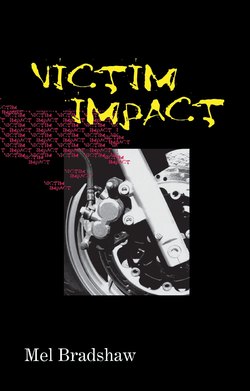Читать книгу Victim Impact - Mel Bradshaw - Страница 9
На сайте Литреса книга снята с продажи.
Chapter 4
ОглавлениеTed had first become aware of the Dark Arrows by accident. An accident with deep roots.
He’d grown up on the west island of Montreal. As a suburban kid, he’d depended on his bicycle both for transportation and for a sense of freedom. Independent and small for his age, he was the kid that didn’t play hockey. He lived for the summer riding season and dreamed of engines more powerful than his short legs to let him bike faster and farther. He liked to listen to his Uncle Luc, who owned a country store in the Laurentians, talk about the Triumphs and Indians, the Hondas and Harleys he’d gassed up at his pumps. Then—as the years went by—more and more Harleys, and fewer of anything else.
Ted had been young during Canada’s first experience of biker gangs. He’d been ten when the Hells Angels had patched over the Popeyes to establish in Montreal the first HA chapter in the country. He’d been seventeen when the Sorel Hells had purged the leadership of the Laval Hells, zipping their brothers’ bodies into weighted sleeping bags and dumping them in the St. Lawrence River. He’d been eighteen when the first round of biker trials started. Biker gangs were the new face of organized crime, more murderous and reportedly more powerful than the Mafia. Far from being hedonistic users and losers, the Sorel crew were disciplined dealers—dependent not on substances they ingested but on pagers and spreadsheets. Here, for a keen and impressionable young McGill University freshman, was a subject worth studying. Socially important, and spiced with a paradox: how had the motorized two-wheeler, so suggestive of the open road under an open sky, become the symbol of a paramilitary troop of conformist bullies?
It didn’t escape Ted’s notice that biker gangs were not the safest subject to research. So when he’d come to the University of Toronto in 1989 to do graduate work in criminology, he chose a thesis topic that would not necessitate contact with criminals. Instead, he surveyed and analyzed the public’s attitude to sentences handed down by criminal courts. Much of his subsequent work had been on the youth criminal justice system, but organized crime remained a strong interest, and a subject on which he taught courses. And he never quite lost sight of the biker gangs. In 1995, during the war between the Hells Angels and the Rock Machine, a bomb in Montreal accidentally killed an uninvolved child only three years younger than Ted’s younger brother Patrick. Again, in 2000, Ted’s thoughts were drawn back to his hometown, when Dany Kane, a police informant against the Hells, was found dead in his garage and when—not long after—Journal de Montréal writer Michel Auger was shot six times in the back for writing about the gang.
Meanwhile, Ted had started riding motorcycles of his own, including the modest Yamaha that had carried him to the 1998 recital where he’d met Karin. He’d owned other bikes since, his most recent—bought in April of last year—a gently used Kawasaki Ninja.
